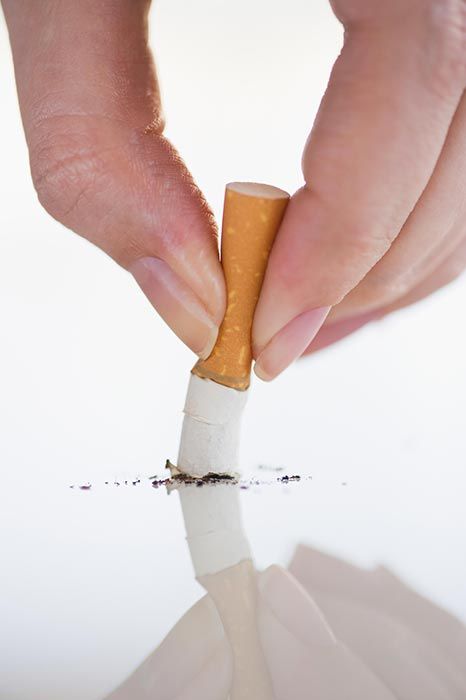Stoptober may have come to an end – the annual challenge that encourages people to quit smoking for 28 days during the month of October – but it is never too late to kick your nicotine habit. If you are one of the seven million Britons who smoke, you can still vow to make your next cigarette your last and in so doing vastly improve your long-term health prospects.
One of the biggest causes of death and illness in the UK, smoking has a direct impact on your chances of developing cancer and heart disease. In fact, it is estimated that between half and two-thirds of lifelong smokers will be killed by their habit. Yet research shows that if you can stop smoking for 28 days you will significantly boost your chances of quitting for good.
Figures just published by the NHS show that a million people signed up to stop smoking during this year’s Stoptober campaign. Of those, around 51 per cent should have succeeded in the 28-day stop smoking challenge, making them five times more likely to stay smoke-free forever.
NICOTINE KNOW-HOW
Still not convinced to give it a try? Then consider these smoking facts:
• It is thought that nicotine may be as addictive as heroin and cocaine.
• Nicotine takes just seven seconds to get into your bloodstream after you inhale.
• Harmful chemicals found in cigarette smoke, including carbon monoxide and benzopyrene, contribute to heart disease and some cancers.
• Cigarette smoke also robs your body of the antioxidant vitamins A, C and E. This can cause further cell damage, leading to illnesses like osteoporosis, arteriosclerosis or clogging of the arteries, pneumonia and even breast cancer.
• There are just under half a million smoking-related hospital admissions annually.
• In clinical studies, smokers are regularly thought to look at least five years older than their actual age.
• It takes around seven minutes to smoke each cigarette, which means that men waste, on average, 90 minutes a day puffing away, while for women the figure is 77 minutes.
• It takes just one nicotine-free week to break that physical addiction and rid your body of the chemical. What makes giving up smoking so hard is that there is also a psychological element; even after your body stops needing nicotine, your mind will still play tricks, telling you that it has to have a nicotine fix.
• Other than motivation, the key to beating your cravings and giving up for good is to stop thinking long-term and simply take it one minute, then one hour and one day at a time. Be encouraged by the certainty that your health is improving every step of the way.
RECOVERY TIME
This is what happens to your body after you stub out your last cigarette:
20 minutes later Pulse rate returns to normal.
8 hours later Nicotine and carbon monoxide levels in blood reduce by more than half and oxygen levels return to normal.
48 hours later Carbon monoxide will be eliminated from the body. Lungs start to clear out mucus and other smoking debris. There is now no nicotine in the body. Ability to taste and smell is improved.
72 hours later Breathing becomes easier. Bronchial tubes begin to relax and energy levels increase.
2-12 weeks later Circulation improves.
3-9 months later Coughs, wheezing and breathing problems improve as lung function increases by up to 10 per cent.
1 year later Risk of heart disease is about half that of a person who still smokes.
10 years later Lung cancer risk falls to half that of a smoker.
15 years later Risk of heart attack is the same as that of someone who has never smoked.
SUPPORT SERVICES
If you do decide to give up, it makes sense to take advantage of the support available as you are four times more likely to succeed with help. Go online and find your nearest Stop Smoking Service (see the NHS link below), where you will find free expert advice and encouragement. You can also take advantage of the Smokefree Quit Support Pack, smartphone app, email programme or text message support service.
Finally, consider joining the Facebook Smokefree online community, where you can share experiences with other quitters and get help and support, plus advice on nicotine replacement therapy, as well as on e-cigarettes.
• Visit nhs.uk/smokefree; tel: 0300-123 1044.










